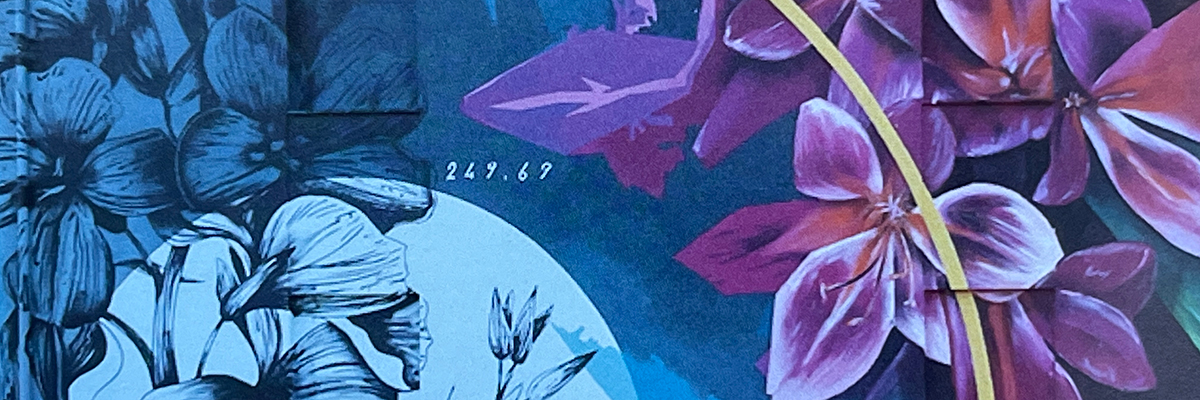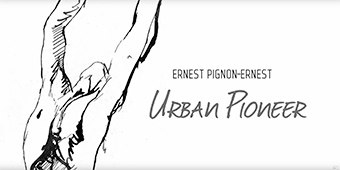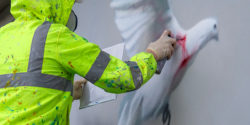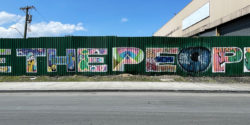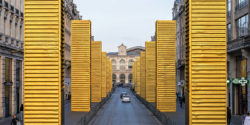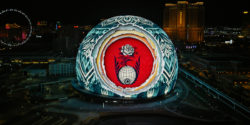The human-built city has at times been called a jungle, but the concrete and steel environment flatters itself if it really thinks so. The intelligence and beauty present in the natural plant world far outstrips our modern cityscape, centuries after its origination. At least a few artists have been bringing it back to us in murals over the last few years, introducing a calm, lyrical serenity that dives way beneath the conscious, touching our roots.
The young Italian painter Fabio Petani has been reintroducing a natural agenda to cities across Europe for less than a decade – in a way that only a scientist, botanist, and naturalist with a design sensibility could. What is genuinely original is his subtle re-interpretation of the formal conventions of botany, introducing them to a modern urban audience without lecturing – and rising far beyond purely decorative presentations.
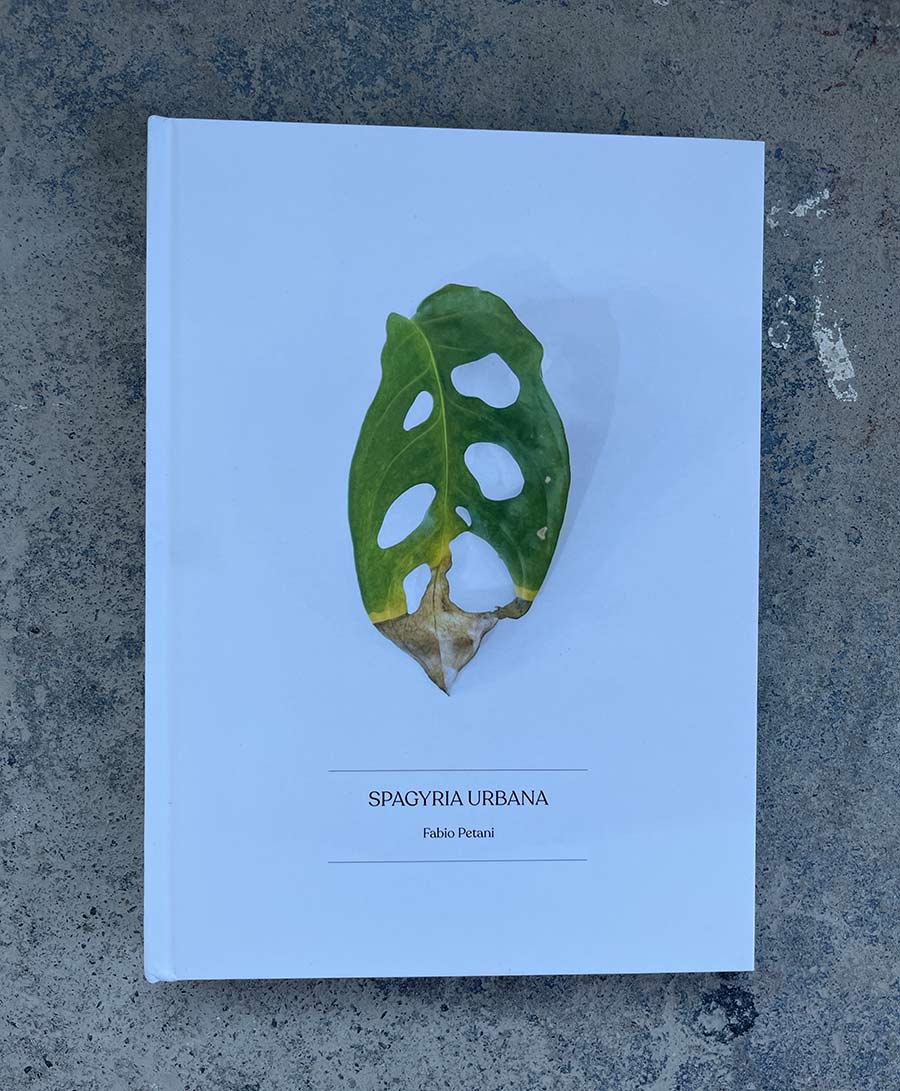
In the first hardcover-bound collection of works called Spagyria Urbana, the Dinerolo-born, Turin-trained Fabio Petani impresses with scale, scope, and sensitivity. More impressive possibly is the ease with which he can command his scientific interests and his ability to infuse his works with warmth, into rather artisanal renderings of art.
The book gives sweeping vistas of his large-scale works as well as many small and personal details about his development as an artist and the tight brotherhood of Italian street artists who invited them into their fold, first as an assistant, later as a peer. With outstanding scholarship and imaginary descriptive phrasing, lead essayist Alessandra Loalè brings the artist and the work into context, instilling a greater appreciation in the reader.
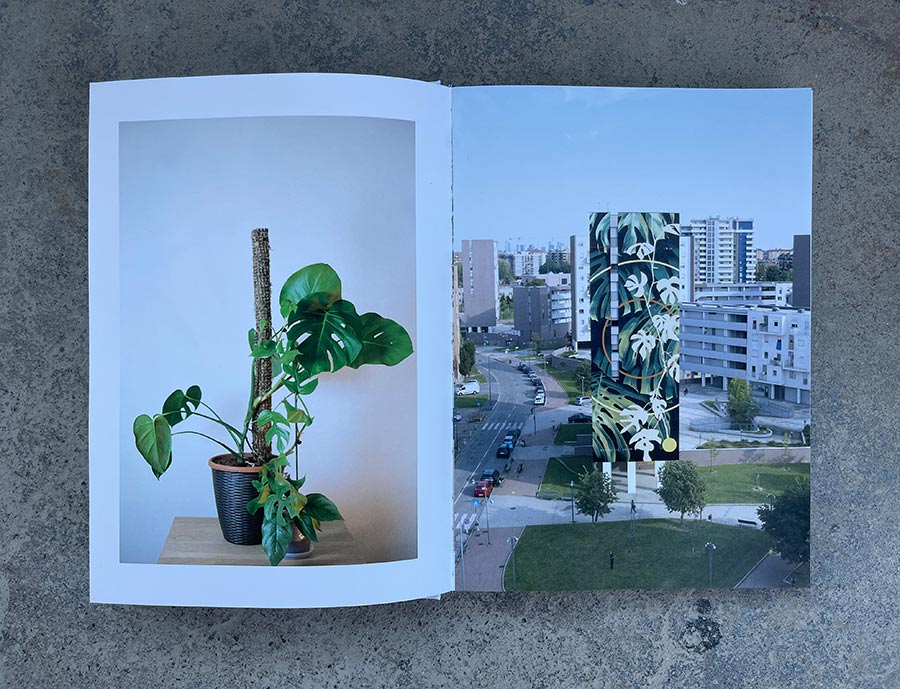
The duality of Petani’s combined and complementary styles is captured eloquently and instructively as analogous to the natural forces of life. “The abstract stroke of his first artworks gives way to a further realistic approach in the creation of the compositional layout, which results in a progressively more articulate combination of simple graphic elements,” she writes “a symbol of a logical conscience which brings order to the whole structure – and botanical subjects.”
“The latter is represented in more recent pieces in two guises: a pictorial reinterpretation, defined by brush strokes and specks of color, and a more realistic graphic approach, which hints towards the typical etchings featured in botanical illustrations, enriched by the meticulous descriptions of thoroughly researched details that are proper to each species.”
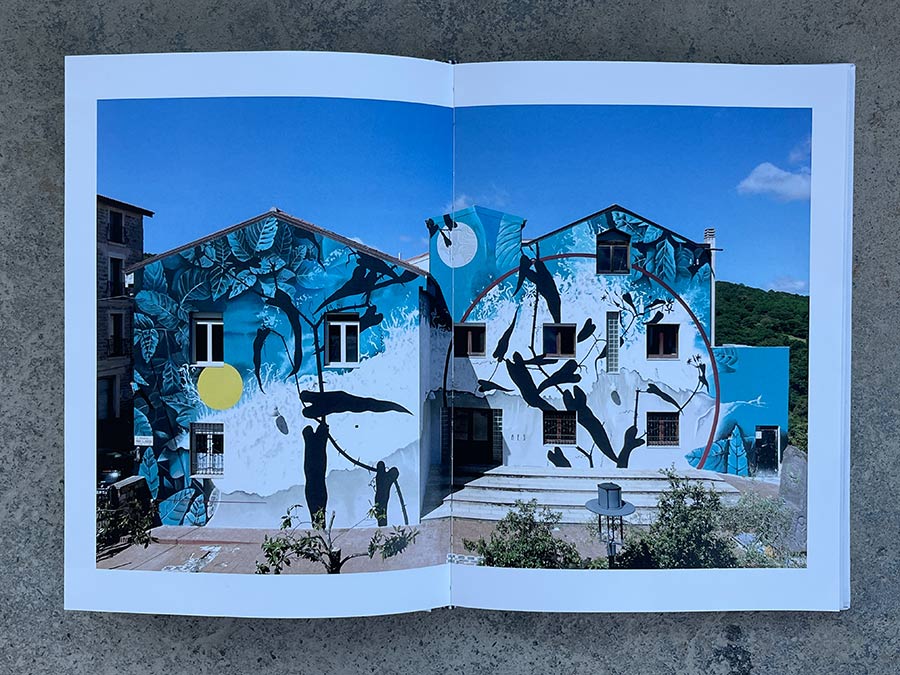
In an age of awakening to our true impact on the natural world, it is perhaps more surprising that many 20 and 30-something urban artists are not drawing our attention to its power, intelligence, and inherent beauty. Petani brings the urban passersby straight to the source unflinchingly and with all the respect Mother Nature deserves.
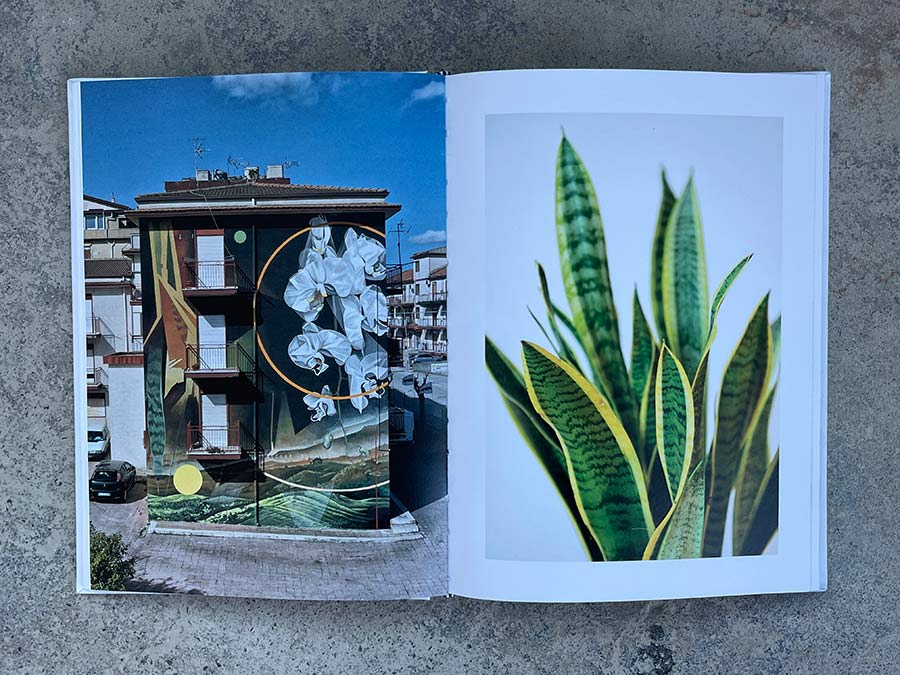
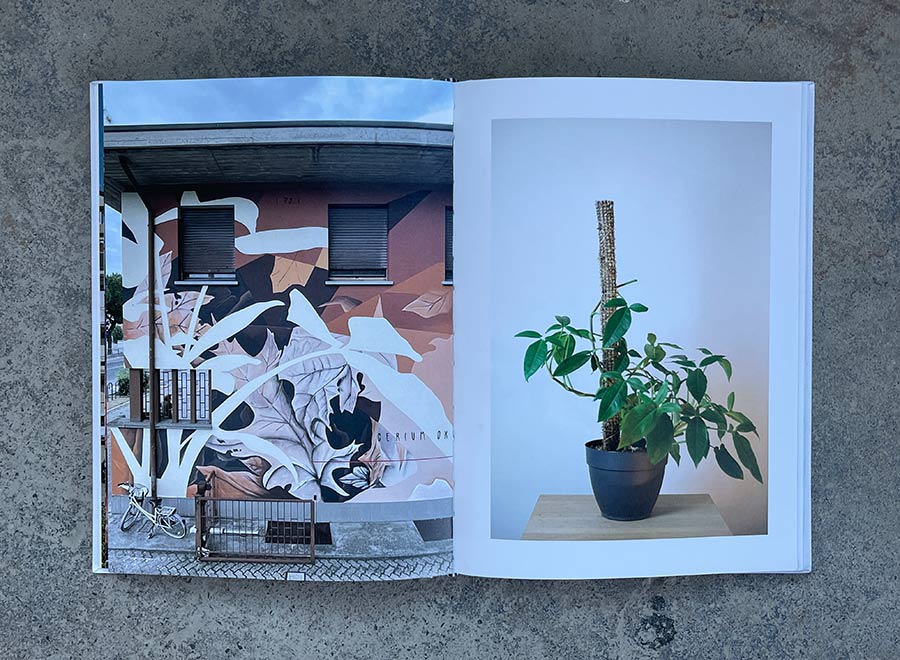
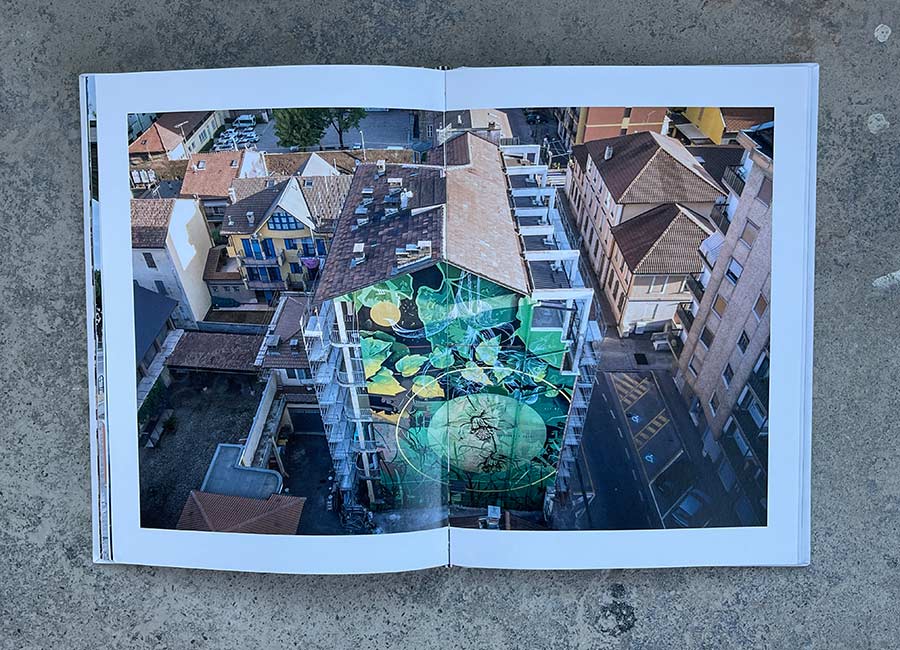

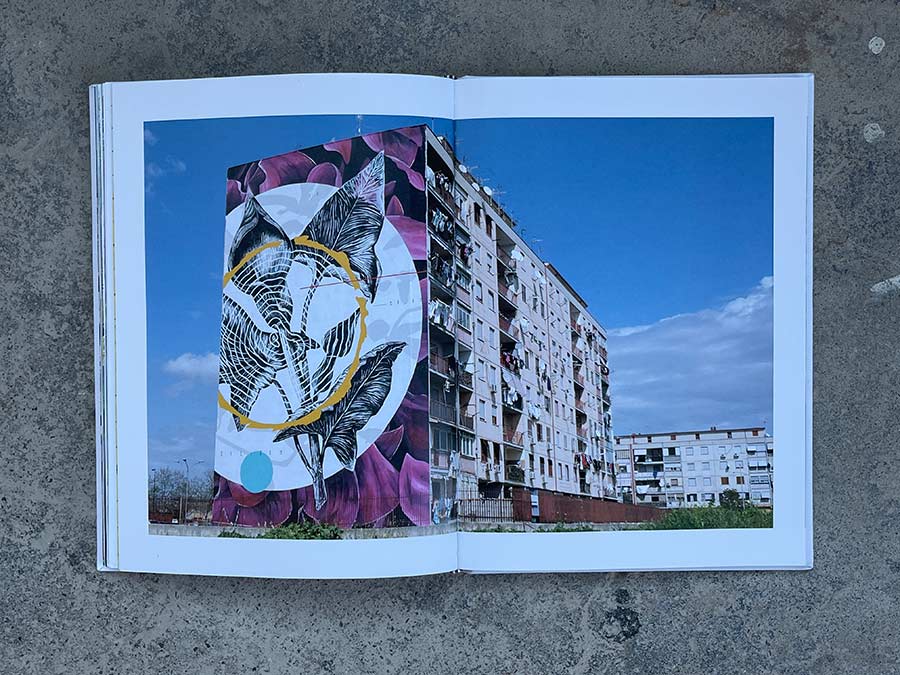
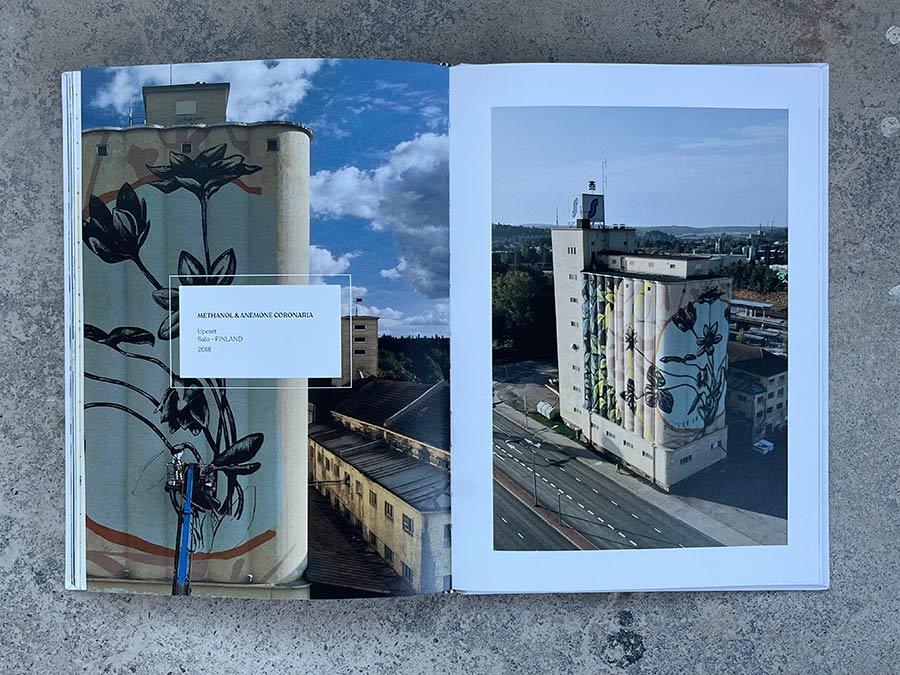
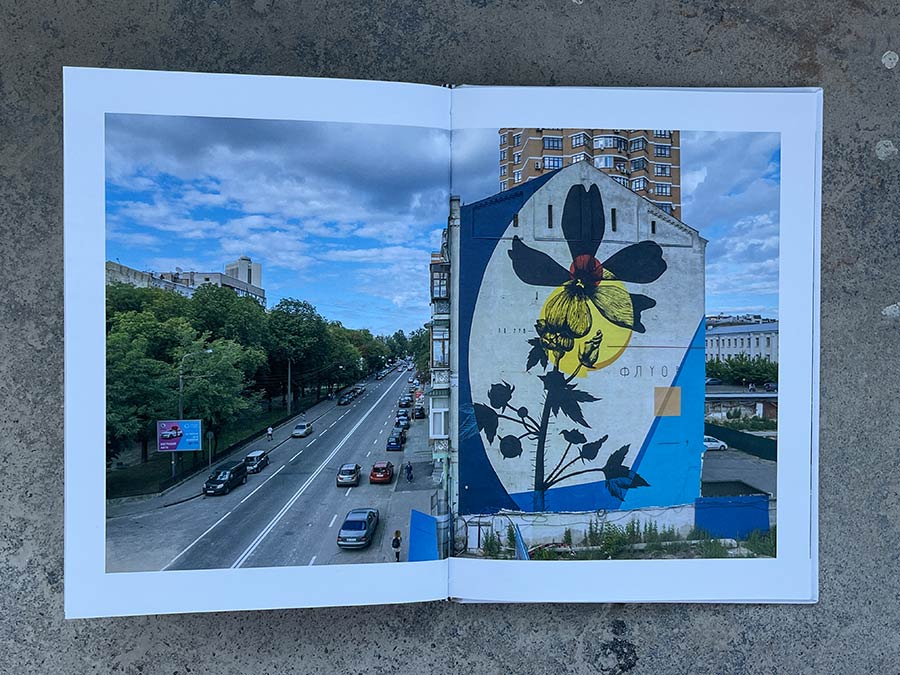
Fabio Petani “Spagyria Urbana”. Torino, Italy. 2021. Texts by Alessandra Loale. Layout by Livio Ninni with translation by Mauro Italiano.
Other Articles You May Like from BSA:
Now that we are closing the exhibition, how would you like to vandalize it? Mimi Scholz . Mario Testino "Undressed" Helmut Newton Foundation. Berlin. One Day Only Street Art Intervention curated by...
“L A N D S C A P E / Struttura G051” Giulio Vesprini. “L A N D S C A P E” / Struttura G051. Monte Urano, Italy. April 2021. (photo © Alessio Bracalente) So many basketball courts have been used...
Our weekly focus on the moving image and art in the streets. And other oddities. Now screening participants at Festival Asalto 2020: 1. FAITH XLVIII 410 BC - 340 BC2. Ozmo / "La visión de Ton...
A 3-day solo exhibition this weekend opens with SNIK at The Crypt Gallery in London Snik. "EPHEMERAL" (photo © Doug Gillen) Flowers in decomposition, pathways to discovery, hidden and revea...
As we draw closer to the new year we’ve asked a very special guest every day to take a moment to reflect on 2017 and to tell us about one photograph that best captures the year for them. It’s a...
 BROOKLYN STREET ART LOVES YOU MORE EVERY DAY
BROOKLYN STREET ART LOVES YOU MORE EVERY DAY